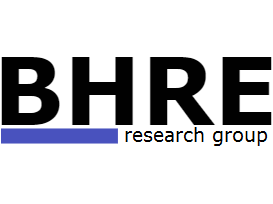Beyond Corporate Transparency- The Right to Know
/The BHRE has partnered with the GoodElectronics Network (GE) and the Centre for Research on Multinational Corporations (SOMO) to advance our work on supply chain transparency. In May we released a report that proposes a new approach to the urgent need for disclosure and transparency in the global electronics industry. “Beyond corporate transparency. The right to know in the electronics industry”, leaves behind the stale concept of voluntary corporate disclosure, and instead makes the strong argument for a rights-based systematic, coherent and mandatory approach to corporate transparency.
In this report, GE, BHRE and SOMO maintain that the right to information is both a right in itself and a precondition for the realisation of other rights. This report calls for transparency in the global electronics production network from a rights-based approach whereby access to information is a right for workers, their families and members of their communities, and whereby providing information is a duty both of states and businesses.
The approach to transparency presented in this report is soundly grounded in two frameworks that are rapidly developing in international and national law and practice: the right to information, and corporate human rights due diligence and non-financial disclosure. Rights-based transparency is implicit within businesses’ responsibility to communicate and engage with rights-holders and other relevant parties and explicitly within states’ obligations to protect human rights.
The fundamental rights of workers in the global electronics industry are violated on a massive scale. Millions of workers are working under precarious and toxic conditions, resulting in poor livelihoods, injury and even death. Corporate secrecy and lack of transparency of supply chains plays a key role in perpetuating these harms. Workers in the global electronics production network, their families and communities are denied access to vital information and not allowed to play a role in decision-making processes which impact their working lives and conditions. Barriers to such information are based on corporate demands of confidentiality that fail to properly take into account the rights of workers.
Workers, their families, and community members that are affected or potentially affected by the electronics industry are the primary ‘rights-holders’ of the right to know, or, in other words, the right to access information. Companies are responsible for disclosing all information that may impact on, or is necessary to realise workers’ rights, and information that affects workers’ lives and livelihoods to primary rights-holders and to other related parties such as worker representatives and representative organisations. States have the obligation to ensure companies do so and that workers can access and engage meaningfully with such information. This makes states and business enterprises ‘duty bearers’.
Disclosed information should include facts and figures on trading and purchasing practices; on buyer-supplier relations; on the position of a company in the value chain; on production facilities, including work place conditions and labour force; on corporate human rights due diligence policies and practices, including the mapping of risks and the findings and outcomes thereof; and on materials, components and end-products. The report presents a break-down and detailed list of the information that should ideally be disclosed and communicated, grouped in seven data sets, each with a varying number of data points.
We hope that the work this report does in identifying transparency why, for whom, of what and how, contributes to advance the clarification and full realisation of the right to know and the duty to inform and exercise due diligence to protect the rights of workers, their families and communities. We also hope this report is useful for your efforts of advocacy, capacity building and calls for corporate accountability.


